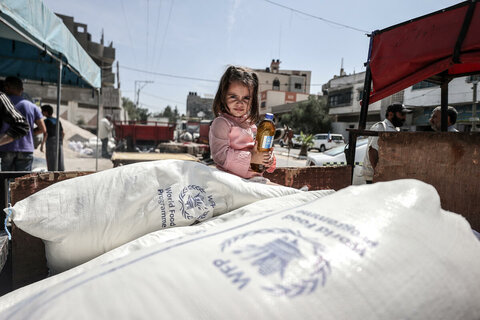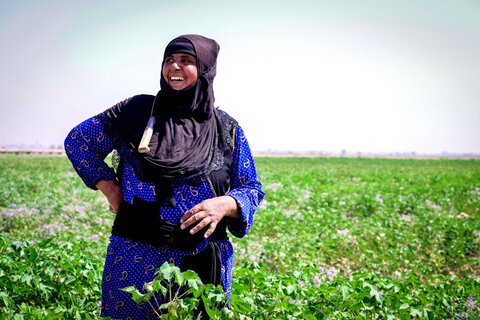WFP, my work and me…Nihal Nassereddin
Nihal Nassereddin is a nutrition officer and food technologist based in her home city of Jerusalem. She joined WFP in 2009 and is a passionate advocate for food safety and quality through testing produce, auditing factories and suppliers, and managing risks along the food chain.
Who has inspired you most in your life?
I joined WFP in 2009 when the Palestine Country Office was the first in the whole region to hire a food technologist, and when the Food Quality Control unit was just being established at headquarters. Bertrand Salvignol was the head of unit. I used to call him the encyclopedia and he was one of the people who really inspired me and left a mark. Really, he was the one that helped me develop my career in WFP.
What is the best decision you ever made?
So far, the best decision I’ve ever made – on my own – is studying nutrition and food science. I am doing the thing that I really enjoy and I was lucky to be able to choose what to study when I finished high school, when most teenagers are lost.
"Every girl has the opportunity and access to education."
What was education like when you were growing up? What sort of opportunities did you have?
In Palestine, but also in many other Arab countries, women’s education is considered one of their assets. Being educated and holding a Master’s degree is not something unique or uncommon in Palestine. Every girl has the opportunity and access to education - this isn’t limited to certain people or area or background. On the contrary, people push more for their daughters' education than their sons', and are always trying to give their children the best for their future.
What was your own school like?
I was in one of the hardest and most demanding schools in Jerusalem, which applies the German curriculum. Every year I remember I cried and asked my parents to send me to another one but they refused and insisted I stay at it, even if I felt it was really hard to get high grades. When my parents sent me to Jordan to study nutrition and food science – at that time, nutrition wasn’t included in the curriculum of Palestinian universities – I really appreciated their firm stance on not changing my school, and their determination to offer me the best.
Which words or phrases do you most overuse?
Most of the time I feel I am hated by the quality managers at the factories, as if they feel like I am a school principal who is searching for their mistakes and defaults, but I always tell them: ‘It is in your own interest and benefit before anything else. Having a strong system will allow you to compete globally and be proud of your local production.’
Where in the world would you most like to live?
Palestine, my home country. I would like to travel around the whole world, but in the end I will also end up back here – the memories, the family. It’s not easy to live here, especially for people who live in Jerusalem, but still it is our legacy, our family, our memories which can never be replaced by anything else.
How is it working in Palestine right now?
It is more challenging, but entering Gaza has always been challenging. Given the humanitarian context, and even as a humanitarian, you need a special permit to go to Gaza and even some areas in the West Bank. COVID-19 has added even more restrictions on movement and access. We had a group of women who were pregnant or breast feeding, and/or had children under 5, who lived in one of the most restricted areas of the West Bank. To communicate with them, we developed a Whatsapp group and started to contact them daily, to talk about nutrition or food safety, and how to maintain hygiene when they cook. It worked really well. The mothers were really interactive and look forward to receiving new messages and sharing their views.
When have you felt at your happiest?
I feel I should say when I had my children but that’s not 100 percent right! I was happiest at that stage of my life when I got my Master’s, as I had felt it was mission impossible for me being a mother of two and working with WFP at the same time. When I got it, I felt like I controlled the world.


